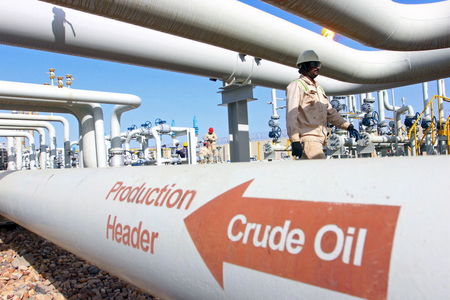
Investing.com — The risks of a spike in crude oil prices have increased, as per analysts at BCA Research. While BCA maintains a cyclical outlook that crude prices are likely to weaken over the next six to nine months, the immediate market environment is fraught with uncertainties that could support higher prices in the near term.
Geopolitical tensions, particularly the escalating conflict in the Middle East, are creating supply-side risks that have jolted market participants awake to the possibility of a supply shock.
The recent jump in oil prices is attributed to fears that the ongoing conflict may spill into oil-relevant geographies. As per BCA analysts, Israeli officials are reportedly considering a strike on Iranian oil infrastructure, a move that would have the backing of the U.S.
This potential disruption comes at a time when the region accounts for a substantial portion of global crude output, raising alarms over the possibility of infrastructure being targeted in future retaliatory attacks.
Despite these concerns, BCA Research notes that there is still ample spare capacity within the OPEC+ bloc to offset any temporary supply shocks.
Key OPEC+ producers have been withholding significant production, and they might be willing to step in and increase output to stabilize the market.
Saudi Arabia, for instance, has threatened to ramp up production to protect its market share, especially if other members fail to adhere to production quotas.
However, even as the potential for a supply shock looms large, BCA Research emphasizes that these short-term price increases might not be sustainable. OPEC+ has both the capacity and motivation to restore withheld production, which could counterbalance any supply disruptions caused by geopolitical factors.
Additionally, if the conflict in the Middle East does not result in prolonged or extensive damage to oil infrastructure, the price spikes may prove short-lived.
On the demand side, BCA remains cautious, forecasting a softening in global oil demand due to a projected global economic downturn.
They argue that while policy easing by major central banks may offer some marginal support, these measures are unlikely to be enough to boost oil consumption in the near term.
China’s economic recovery, a key driver of global oil demand, is also expected to lag, further dampening prospects for a sustained rally in crude prices.
This post is originally published on INVESTING.





